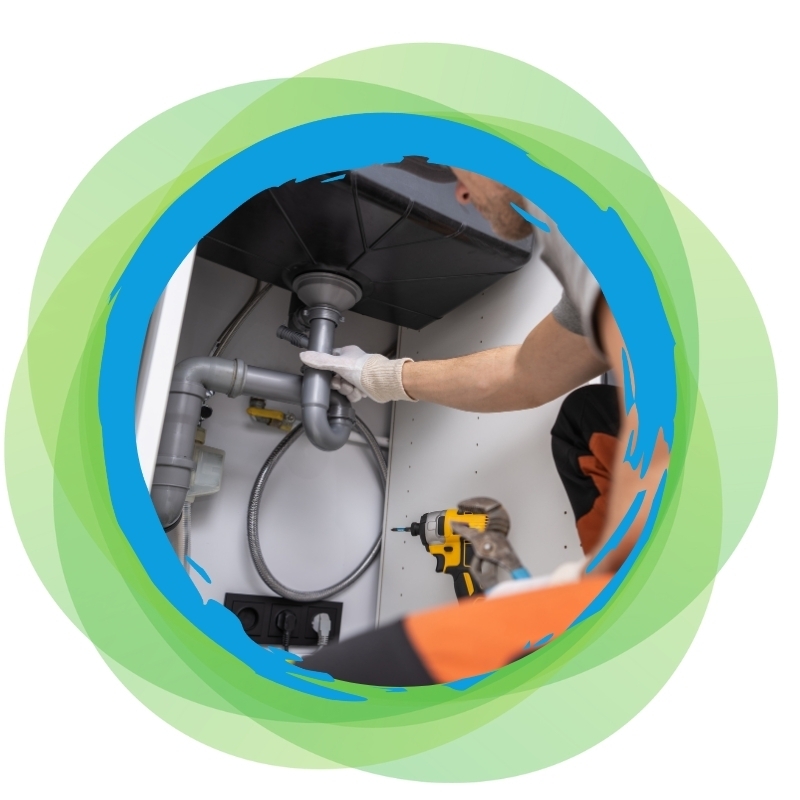Whether you’re prepping dinner, rinsing vegetables, or loading the dishwasher, your kitchen plumbing gets a solid workout every day. When it’s working well, you barely notice it. But when things go wrong, they go pear-shaped fast. From dodgy taps to sneaky leaks, even minor issues can disrupt your entire routine. This article explores how kitchen plumbing influences the functionality, safety, and long-term value of your home.
What signs suggest your current plumbing setup needs attention?
You might not see a flood, but early plumbing problems are usually right under your nose. Spotting the signs early helps you avoid major hassle and costly repairs.
- Water pressure drops suddenly when rinsing, slowing down your kitchen routine unexpectedly.
- Sink drains more slowly than usual, even after clearing food waste and using drain cleaners.
- Persistent unpleasant smells linger even after scrubbing and disinfecting the sink area.
- Taps make squeaky or clunky noises, signalling wear inside or loose fittings.
- Small moisture patches appear under cupboards, hinting at possible hidden pipe leaks.
These signs usually indicate it’s time for a deeper inspection, rather than a DIY band-aid fix. In many cases, the issue stems from overlooked household habits that cause serious drain clogs, which build up quietly over time.
Where do small plumbing issues begin in a busy kitchen?
You don’t need a plumbing license to make problems worse. Most everyday habits cause slow damage that isn’t immediately apparent.
- Pouring oil or fats down the sink allows grease to solidify and slowly block the pipes.
- Using the sink as a bin clogs drains with food scraps and other debris over time
- Skipping proper rinsing before loading the dishwasher can lead to trapped gunk in the filters.
- Attempting to fix taps or pipes with the wrong tools can cause more damage than good.
- Skipping professional checks means unnoticed issues grow worse without intervention.
These sneaky problems often emerge only after a significant event occurs, such as a burst pipe. A nearby issue — like calling a blocked toilet plumber — can also be your kitchen’s early warning sign. Often, multiple plumbing zones are linked by the same system, allowing issues to spread quickly.
Could ignoring minor plumbing issues lead to severe kitchen damage?
Putting off repairs to save time or cash is tempting, but the consequences bite hard later. What seems small now often leads to major headaches.
- Drips cause water build-up that damages wooden cabinetry and ruins laminate benchtops.
- Trapped water behind panels encourages the growth of mould and mildew, which spreads quietly.
- Blockages increase internal pipe pressure, which eventually causes them to crack or burst.
- Standing water or leaks corrode fittings, especially in older copper-based systems.
These issues don’t fix themselves. If anything, they escalate without warning — often overnight. That’s why ignoring a leak is a costly and hard-to-reverse decision. Acting early could mean the difference between replacing a washer and redoing your entire kitchen floor.
What role does kitchen plumbing play in everyday convenience?
You use your kitchen constantly — not just for cooking, but for cleaning, drinking, and washing up. Without plumbing that performs well, the daily grind becomes a nightmare.
- Hot water flows instantly for dishes, saving time and eliminating the need for unnecessary hand scrubbing.
- Clean, filtered water straight from the tap improves both taste and safety for families.
- Dishwashers operate efficiently when water pressure and drainage are correctly set up.
- In-sink disposal units work correctly only when drains are unblocked and pipes are clear.
- Shared systems mean one plumbing fault could impact nearby laundry or bathroom usage.
In short, good plumbing saves you time, reduces frustration, and enhances hygiene. That’s why many households now seek kitchen plumbing services that go beyond just repairs. Finding effective emergency plumbing solutions that improve kitchen efficiency before your next big family meal becomes a plumbing crisis.
Why does reliable kitchen plumbing matter for daily use?
Good plumbing works behind the scenes — but you notice it immediately when it fails. Consistency matters more than you think.
- Pipes need to be free from corrosion and installed using long-lasting, safe materials.
- Shut-off valves should function quickly in the event of an emergency or a pipe burst.
- Water needs to be clean and balanced to prevent damage to internal plumbing systems.
- Appliances such as dishwashers and faucets must be compatible with current plumbing layouts.
- Water pressure should remain stable to prevent pipe stress and unexpected leaks.
When your system runs like clockwork, you’re not second-guessing if it’s safe to use. That’s why more Aussies now seek out professional kitchen plumbing teams for regular system checks and updates.
When should kitchen plumbing be upgraded to meet daily demands?
There comes a point where patching old plumbing is no longer sufficient. If your system is constantly misbehaving, an upgrade is the smarter move.
- Your pipes or fittings are over 10–15 years old and showing signs of wear or corrosion.
- You’ve required multiple repairs within a short timeframe, suggesting deeper underlying issues.
- Water bills have increased without an apparent change in your usage or household size.
- Your kitchen layout is changing, which may require rerouting or adjusting the pipes.
- Taps knock loudly or pipes vibrate when water is turned on or off
Don’t wait until a disaster forces your hand. An upgraded system gives you peace of mind. Many kitchen plumbing companies now offer customised solutions tailored to water pressure, appliance needs, and property layout.
| Plumbing Issue | What It Means | Suggested Action |
| Rust-coloured water | Corrosion inside pipes | Replace old pipe sections |
| Recurrent drain smells | Organic buildup or venting issue | Clean and reseal joints |
| Loose taps or handles | Worn fittings or stripped screws | Install modern replacements |
| Slow hot water supply | Heater or pipe insulation problems | Add insulation or upgrade |
| Bubbling from other drains | Air pressure imbalance in the system | Assess venting structure |
What makes investing in kitchen plumbing a worthwhile long‑term decision?
Think of plumbing as an investment in your home’s future. It’s not glamorous — but it pays off big.
- Lower water bills over time thanks to modern fixtures that reduce unnecessary waste
- Higher resale value for buyers who want a working kitchen with no plumbing issues
- Less emergency stress thanks to well-maintained shut-offs and sturdy pipework
- Clean, flowing water makes food prep safer and more hygienic for everyone at home
- You can plan renovations more easily when your plumbing is set up to handle change
Whether you need a quick fix from kitchen plumbers or want a complete overhaul, acting early keeps your kitchen functional for the long haul. Some homeowners even opt for professional kitchen plumbing services that include scheduled maintenance and water quality testing.
It’s a smarter, long-term way to stay ahead of bigger issues. For long-standing odour problems, start by understanding the common factors behind smelly sink drains before the smell spreads throughout your home.
Final thoughts
If your taps are leaking, drains are bubbling, or you’re in the midst of a renovation — it’s time to act. Kitchen plumbing doesn’t need to be flashy, but it must be dependable. A minor fix now prevents a significant disruption later. If you’re not sure where to begin, find out how Eco Plumbers 24/7 handles everyday plumbing needs smoothly. A quiet system is a sign of a job well done – and a kitchen ready for anything.

